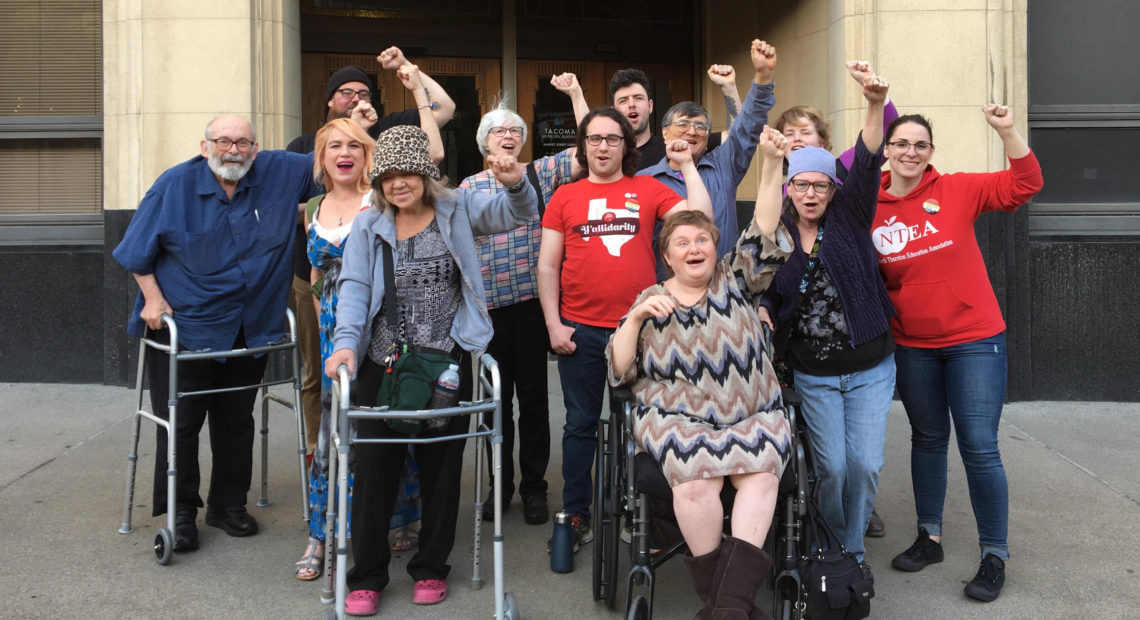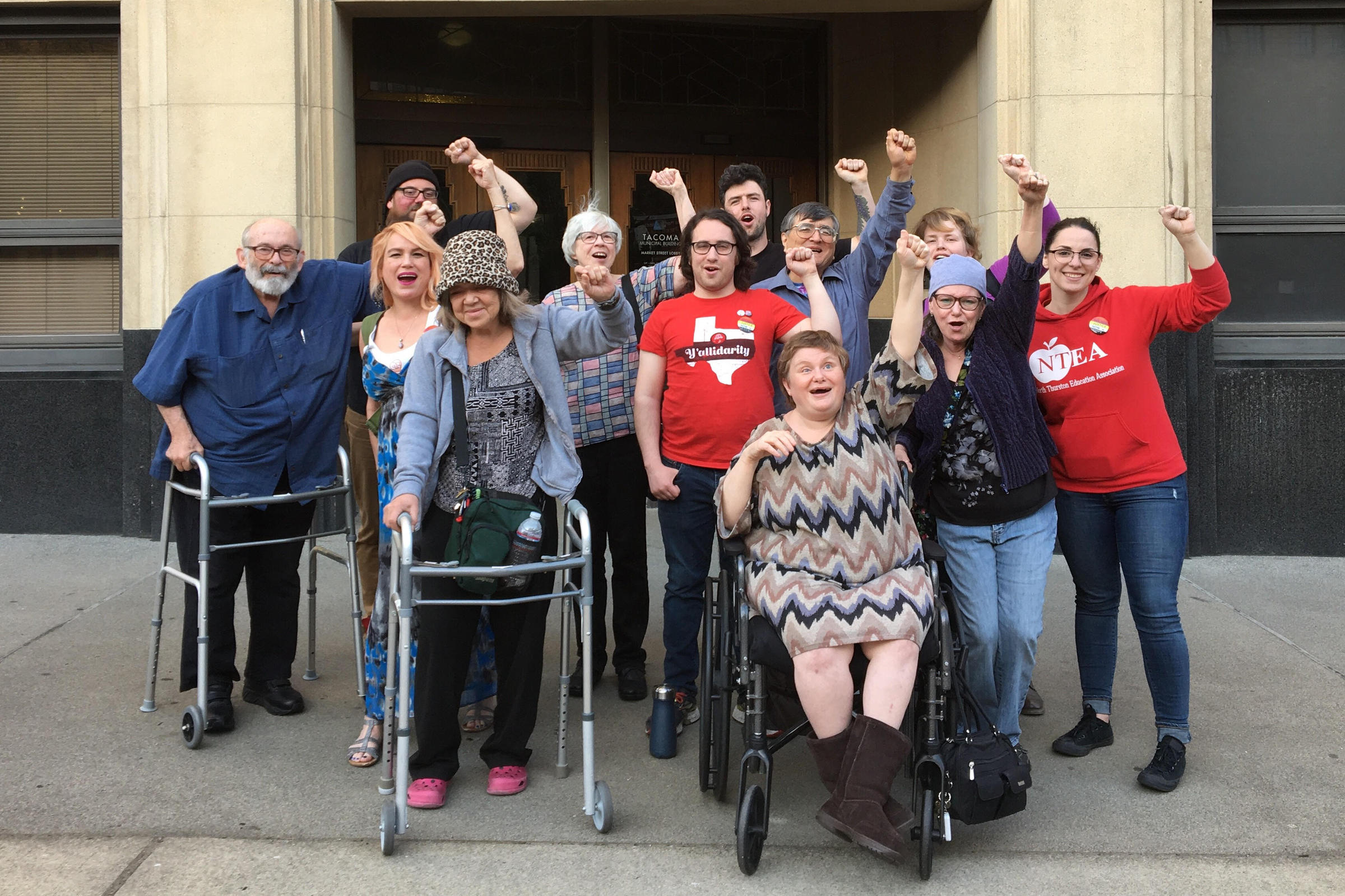
In Tacoma, Tiki Apartment Evictions Highlight Greater Issues With Housing Crisis
Listen
A mass eviction from a Tacoma apartment complex is causing city leaders to take a hard look at tenant protections that have lagged behind Seattle’s.
Residents of a complex called the Tiki Apartments, many with disabilities and fixed incomes, packed two City Council meetings this week to plead for help.
A new landlord from Seattle plans to renovate the complex and gave some residents less then a month to vacate.
On Thursday, council members convened an emergency meeting and announced a last-minute deal with the landlord, CWD Investments LLC, to extend the move-out date to the end of June.
But, as rents in Tacoma soar closer to Seattle levels, some said the Tiki Apartments episode is just the beginning.
James Williams, a member of the Tacoma Area Commission on Disabilities, called it “the canary in the coal mine.”
“With the housing market the way it is, there are going to be more Tiki Apartments,” he told council members Thursday. “And more and more people are going to be dispossessed.”
Council Member Conor McCarthy said the situation was a sign of a broader crisis in Tacoma. He said about half of Tacoma households rent apartments and about half of households live on less than $52,000 a year.
“When we have a real-estate boom and we see rents go up almost 10 percent in a year, that has a dramatic impact,” he said.
Tacoma rents have increased more than 8 percent since last year, one of the fastest rises among small cities nationwide, according to a report by the apartment search company RentCafé.
The City Council passed a law Thursday requiring landlords to give 90 days’ notice if a demolition or renovation will displace tenants. Previously, the required notice period was 20 days. Tacoma’s law is now in line with Seattle’s.
Landlords can face fines of up to $1,000 per tenant per day for violating the law.
Council members also said they would work to create a relocation fund to help tenants displaced in the future. Seattle has had such a fund since 1990.
Residents of the Tiki Apartments received notice of the eviction earlier this month. The issue came to a head at a City Council meeting Tuesday.
“I’ve got six days and I’m going to be on the street,” Sarah Howe, a resident who is blind and uses a wheelchair, told council members.
Howe and her neighbors now have until June 30 to move out. Tenants will receive $900 if they move by the end of May and $600 if they vacate by the end of June.
An attorney for CWD Investments LLC said the complex is in need of renovation and the company’s notification of tenants complies with federal and state law.
Copyright 2018 KNKX
Related Stories:

United Farms Workers call for boycott of Windmill Farms products at Tacoma rally
People traveled from across Washington state to rally outside of a Tacoma Safeway store in support of farm workers Monday afternoon.
The United Farm Workers and their supporters are calling on Windmill Farms in Sunnyside to recognize the unionization efforts and give workers a contract. The union said workers have been trying to get recognition for two years.

Labor council in Pierce County wants to establish flexible child care facility for laborers
The Pierce County Central Labor Council is taking on an ambitious task — figuring out the problem of child care for working families.
It’s a problem that Nathe Lawver, secretary-treasurer for the council, knows well.
“Any conversation on workforce, within twenty minutes you’re talking about child care,” Lawver said.

Bills to allow some, regulated access to psilocybin unlikely to move forward
Washington state lawmakers still can’t pass bills to allow for some legal access to psychedelics.
With Feb. 21 as the cutoff for bills to move out of policy committees, two pieces of legislation that would have allowed regulated and supervised access to psilocybin for adults won’t be moving forward — Senate Bill 5201 and House Bill 1433. The bills faced opposition from state psychiatric and medical groups, as well as advocates for psychedelics.















